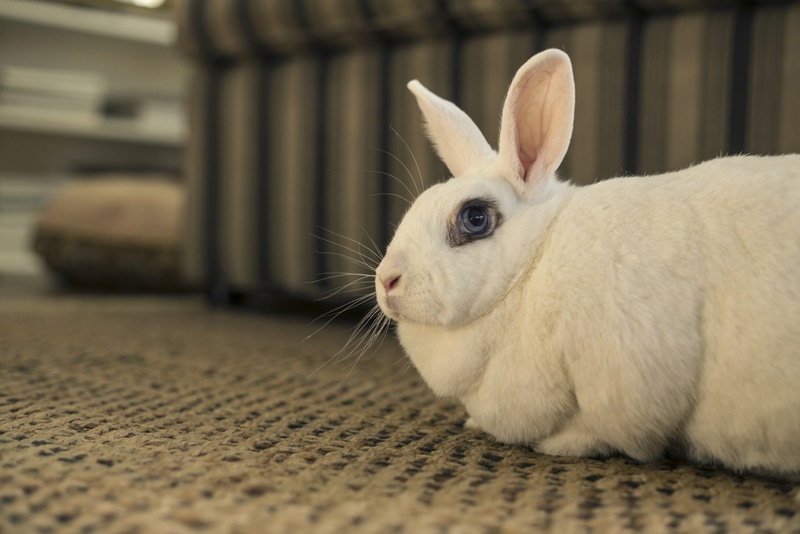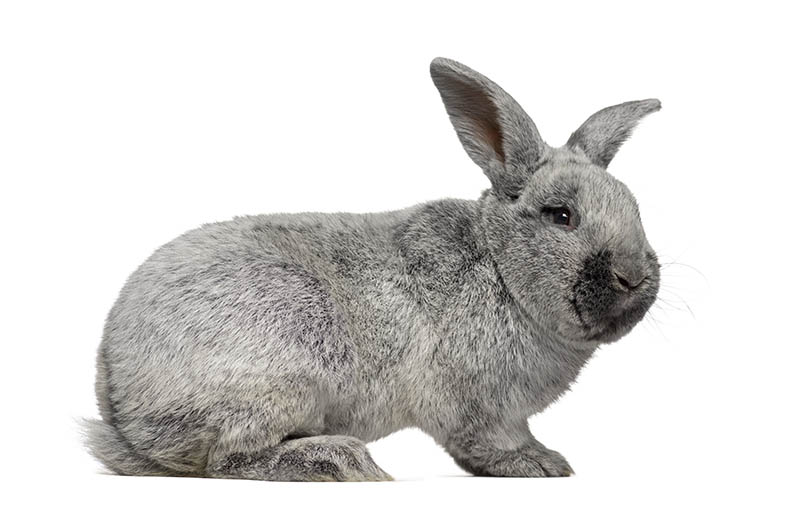Can You Keep a Wild Rabbit as a Pet? The Surprising Answer
Updated on
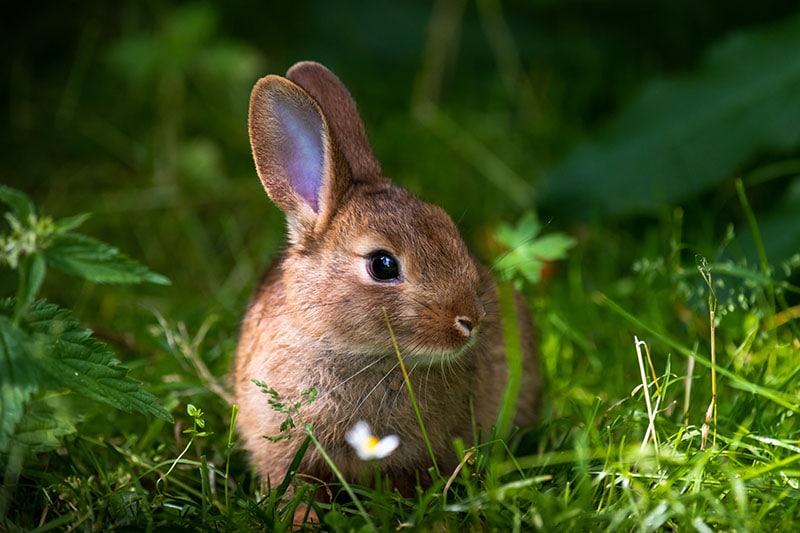
Click to Skip Ahead
Rabbits are one of the most popular pets in the United States. That’s no surprise considering how cute and cuddly domesticated rabbits are. One question many folks have is whether you can keep a wild rabbit as a pet. After all, wild rabbits are a common sight in most American towns. The answer, unfortunately, is that keeping a wild rabbit as a pet is rife with risks, including the risk of deadly rabies. It’s far better to adopt a rabbit from a pet shop or breeder to get a tame and healthy bunny.
Why Should You Buy a Rabbit from a Pet Store or Breeder?
Wild rabbits have several health and safety issues that are genuine risks to humans. For example, wild rabbits are often infected with the rabies virus, which is deadly and can be transmitted to, and possibly kill, you and other people you love. Rabies is transmitted when a wild animal infected with the virus bites another animal. That’s where the problem lies: a wild rabbit will often kick, scratch, and bite anyone who tries to handle it.
Wild rabbits also have a host of other possible risks for you, your family, and any other pets you might have in your home. For example, since they haven’t been domesticated, wild rabbits behave far differently than pet rabbits. They are more fearful, will lash out if they feel they are in danger, and often have ticks, mites, and other health issues that they can potentially pass to you and other animals.
Plus, they don’t like being handled, petted, or interacting with humans as a domesticated bunny will. For those reasons and several more, adopting a rabbit from a pet store or breeder is far better than trying to tame a wild rabbit.
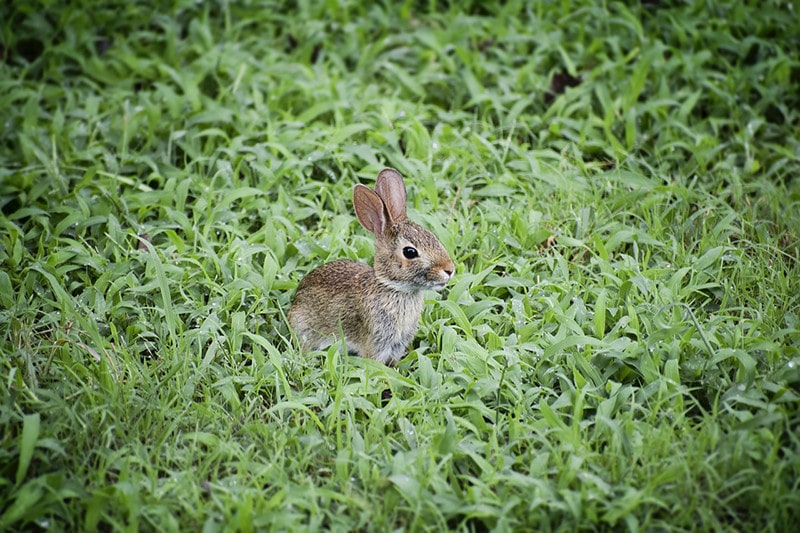
Will a Wild Rabbit Bite You?
The potential for being bitten, scratched, kicked, or even attacked by a wild rabbit is very high, especially if it’s an adult rabbit that’s never been touched by a human. Remember, domesticated rabbits have been raised to be pets, and their instincts have been somewhat muted because of that fact. Most were born to mother rabbits that were pets and have been hand-raised since they were kits.
A wild rabbit has never been touched by a human, which means that its instincts will be fully intact. These instincts tell a wild rabbit to run far away from a human or any other animal that could potentially kill and eat it. In short, the chance that a wild rabbit will bite you is very high.
Can You Raise a Wild Baby Rabbit as a Pet?
Many people find abandoned baby rabbits in the wild, especially those with large yards or access to green spaces. There are a few factors to consider when you find baby rabbits in the wild and want to raise them as pets. First, even if hand-raised, wild rabbits will still have most of their natural, human-fearing instincts intact. That means, as adults, handling and petting them might not be possible. Also, wild baby rabbits can have diseases, health issues, ticks, fleas, etc.
One last consideration is that even if the rabbit is accustomed to you and some family members, their animal instincts will kick in whenever another person visits. Why? Because a rabbit can smell much better than a human. When someone visits, a wild rabbit will immediately smell that another animal (your mother-in-law, perhaps) has arrived and start going into “fight or fight” mode.
Is it Safe to Hold or Pet a Wild Rabbit?
Holding or petting a wild rabbit is not recommended because of all the issues we’ve already touched on, including rabies, mites, ticks, parasites, and other health issues. If you pet or hold a wild rabbit and it bites, kicks, or scratches you, that could lead to a terrible day because treating rabies in a human is extremely painful. Even if the rabbit doesn’t have rabies, their bites and scratches can be painful, especially for a child. Plus, any insects infesting the rabbit could transfer to you or any other pets you have at home.

What Should You Do if You Find or Catch a Wild Rabbit?
Most veterinarians agree that as cruel as it sounds, wild animals should be left in the wild for nature to sort out. One reason is that, in some areas, wild rabbits are a pest species that farmers and landowners are trying to eradicate. Australia has a massive rabbit problem, for example. For this reason, if you find a wild rabbit, it’s best to leave it alone. At most, carefully transporting a wild rabbit(s) to an animal shelter is recommended.
Can Keeping a Wild Rabbit Negatively Affect Other Pets?
We’ve touched briefly on this already, but it begs repeating that wild rabbits can have several health issues. Those issues can be transmitted to other animals, including domesticated pets like dogs, cats, rabbits, gerbils, etc. Even worse, if you keep a wild rabbit around domestic pets and then release it (or it escapes) back into the wild, it could transit a domestic animal disease to other wild animals. So, yes, keeping a wild rabbit, even for a short time, could devastate other pets you might have.
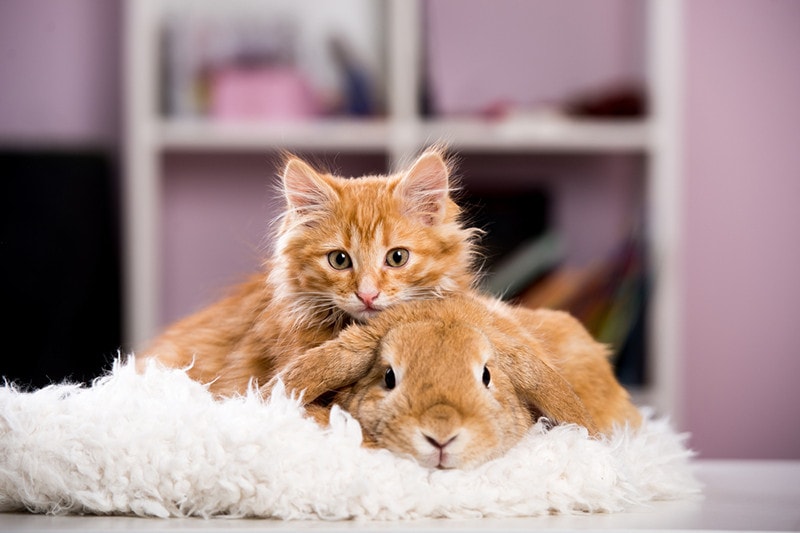
Is It Legal to Keep a Wild Rabbit as a Pet?
One last thing you must consider if you see a wild rabbit and have thoughts of turning it into a pet is that, in most states, it’s illegal. If you get caught, the fine could be hefty and probably much more than adopting a domesticated rabbit would ever be.
Final Thoughts
While some people have found, kept, and raised wild animals as pets, the practice is frowned upon by veterinarians and breeders. The risk of keeping a wild animal as a pet, even as cute and fluffy as a bunny, is too high. Also, a wild rabbit, like any wild animal, will have its animal instincts fully intact. Those instincts are incredibly strong and would make it difficult for the animal to live a happy, healthy life in captivity. If you want a pet bunny, adopting one from a breeder or pet store is always better than keeping a wild rabbit and trying to turn it into a pet.
Featured Image Credit: FullframeFactory, Shutterstock


